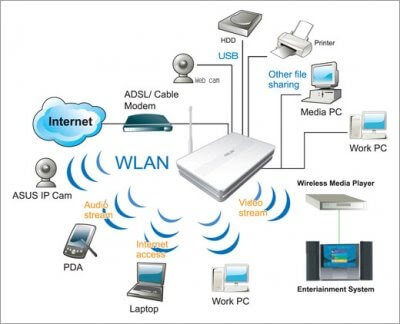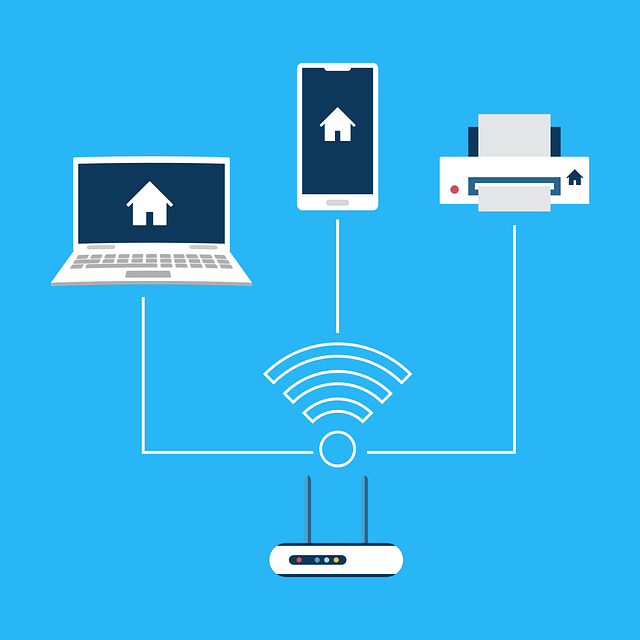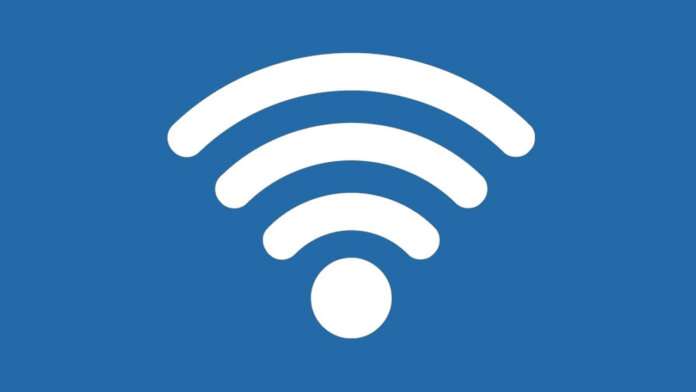Wi-Fi is a wireless networking technology that allows electronic devices to communicate over a wireless signal. It basically turns your computer, phone, or tablet into a small radio station so it can transmit data wirelessly. Wi-Fi uses the same frequency as many other common household appliances such as microwaves and cordless phones which operate on 2.4 GHz or 5 GHz bands.
Each piece of hardware that will connect to your “Wi-Fi” network has a unique address called an SSID (Service Set Identifier) which identifies itself to the router when trying to connect. Devices also have a password assigned in order to join the network securely.
Related: What is Ethernet? Everything you need to know
When you type in this SSID or allow your device to detect this SSID it will join the network. The router then gives your device an address on the local network (LAN) and you’re able to communicate with other devices inside of that subnet.
What is a wireless access point?
An access point is basically a radio or base station. When you enable your wireless hardware you are essentially turning it into an access point, thus allowing other users to connect wirelessly. Without an access point (or without wireless turned on) nothing can connect to the internet because there isn’t anything for them to hook up with.
What is a wireless bridge?
A wireless bridge connects two LANs together so they can talk over a single internet connection using WDS or bridging. As always, everything first goes through your access point to reach the internet. This is just a simple explanation of what a wireless bridge is so you can use one if you want.

Wireless distribution system:
WDS allows routers to talk wirelessly with other routers without having to be physically connected via cables or ports. You can configure up to four different routers for this technology and it will act as if they were all on the same subnet (LAN). The way it works is by sending out broadcast packets over each network which tricks the router into thinking that’s part of one large subnet.
Is Wi-Fi secure?
Yes, Wi-Fi is a secure technology. However, it’s important to remember that just like with any other type of security, your Wi-Fi password is only as strong as you make it. Be sure to use a strong password and change it often. Also, be aware of who you’re sharing your network with. If you’re not sure if someone is trustworthy then don’t give them your password.
You can use Wi-Fi to connect to the internet. In order to do this, you’ll need a wireless router and an internet service provider. The router will create a local network (LAN) for all of your devices to connect to and the ISP will provide you with an internet connection.
What are the benefits of using Wi-Fi?
Increased mobility: With a wireless connection you can move about your house or office and stay connected without having to worry about being tethered to a cable.
Increased productivity: Since you can move about freely, you can work from anywhere in your house or office. This also eliminates the need to find an open port on the router in order to get connected.
Cost savings: Wi-Fi is often cheaper than using a wired connection and it doesn’t require any additional hardware such as a cable modem or Ethernet card.
Convenience: Wi-Fi is easy to set up and use and it’s available almost everywhere.

What are the disadvantages of using Wi-Fi?
Limited range: The further away you are from the access point, the weaker the signal will be. This can be a problem if you’re trying to use Wi-Fi in a large area.
Interference: Wi-Fi signals can be easily corrupted by other electronics such as microwaves, cordless phones, and Bluetooth devices.
Security risks: Since Wi-Fi is unsecured by default, anyone within range of your network can access your data if they know your password.
Slower speeds: Wi-Fi is typically slower than a wired connection.
This post was originally published on 7, December 2021, but according to new information stuff, this post is updated frequently.
Explained Recommendation:
>What is Edge Computing? Explained

